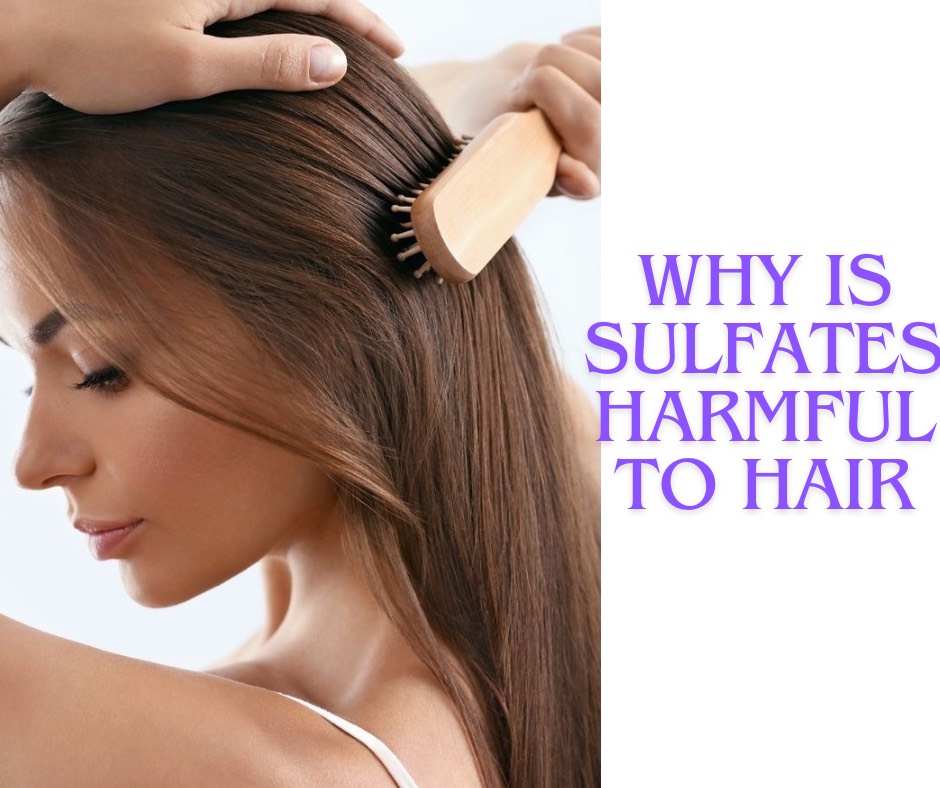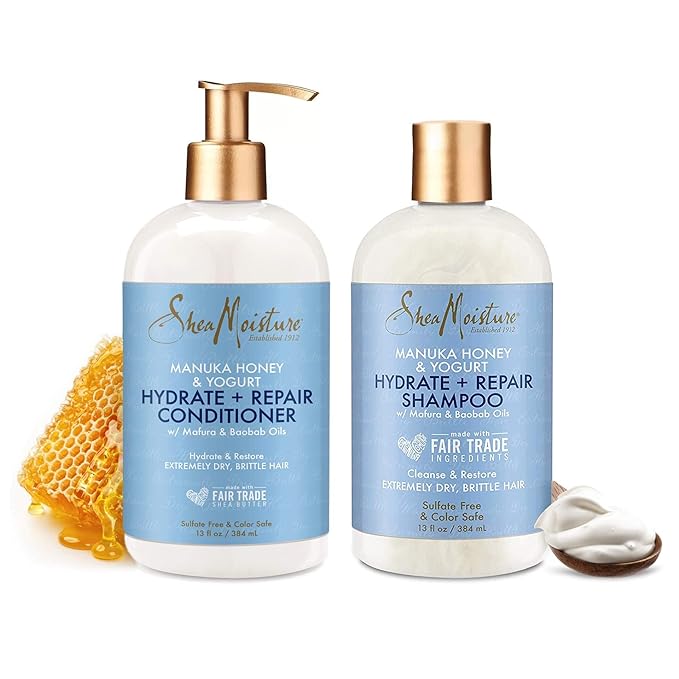Do you ever wonder why your hair feels dry, brittle, and lacks its natural shine despite using a plethora of hair care products? The culprit may lie in the ingredient list, specifically sulfates. Sulfates are commonly found in shampoos and other hair products due to their ability to create a rich lather that gives the impression of thorough cleaning. However, this seemingly innocent ingredient can wreak havoc on your locks in ways you never imagined. In this article, we delve into the science behind why sulfates are harmful to your hair, uncovering the hidden truths behind those luxurious suds and empowering you to make informed choices for healthier, happier tresses.

1. Introduction to Sulfates in Hair Care Products
What Are Sulfates?
Sulfates are cleansing agents commonly found in many hair care products. They are responsible for creating that satisfying lather when you shampoo your hair, but they can also have some negative effects on your locks.
Common Types of Sulfates in Hair Products
Some of the most common sulfates found in hair care products include sodium lauryl sulfate (SLS) and sodium laureth sulfate (SLES). These sulfates can be harsh on the hair and scalp, leading to potential damage over time.
2.Effects of Sulfates on Hair Health
Stripping of Natural Oils
One of the main effects of sulfates on hair is that they are extremely effective at removing dirt and oil from the hair. However, they can also strip away the natural oils that keep your hair healthy and moisturized, leaving it dry and dull.
Damage to Hair Cuticles
Sulfates can also rough up the outer layer of your hair, known as the cuticle. This can make your hair more prone to damage, breakage, and frizz, as well as reducing the overall shine and smoothness of your locks.
3. Potential Risks and Damage Caused by Sulfates
Dryness and Frizziness
Because sulfates are so good at removing oil and moisture from your hair, they can leave your strands feeling dry and brittle. This lack of hydration can lead to frizz and lackluster hair that is difficult to manage.
Irritation and Sensitivity
Sulfates can also be irritating to the scalp, especially for those with sensitive skin. They can cause redness, itching, and flakiness, leading to discomfort and potentially exacerbating conditions like dandruff or eczema.
4.Common Misconceptions About Sulfates
Myth: Sulfates Are Necessary for Clean Hair
There is a common belief that a shampoo must lather up to effectively clean the hair. However, this is not necessarily true, as sulfates are not the only way to achieve a thorough cleanse.
Debunking the Myth: Sulfates vs. Sulfate-Free Formulas
Many sulfate-free shampoos and conditioners are now available on the market, offering a gentler yet still effective alternative to traditional sulfate-containing products. These formulations can cleanse the hair without stripping it of essential oils, making them a great option for those looking to minimize potential damage.”Alternatives to Sulfate-Based Hair Products”
Sulfate-Free Shampoos: Say goodbye to harsh stripping and welcome gentler cleansing with sulfate-free shampoos. These alternatives are milder on your tresses, leaving your hair clean without the unwanted dryness.
Natural and Organic Hair Cleansing Options: Mother Nature knows best when it comes to caring for your locks. Embrace natural and organic hair cleansing options like apple cider vinegar rinses or aloe vera-based shampoos for a healthier hair care routine.
5.Tips for Choosing Sulfate-Free Hair Care Products
Understanding Labels and Ingredients: Don’t let complicated ingredient lists confuse you. Look for key terms like ‘sulfate-free,’ ‘gentle formula,’ or ‘hydrating’ to ensure you’re picking the right products for your hair type and needs.
Recommended Sulfate-Free Brands and Products: From drugstore gems to high-end favorites, there’s a sulfate-free hair care product for every budget and preference. Explore popular brands like SheaMoisture, Olaplex, or Briogeo to give your hair the TLC it deserves.

In conclusion, sulfate is harmful to your hair due to its stripping properties that can lead to dryness, breakage, and damage to the hair cuticle. Regular use of sulfate-containing products can also cause scalp irritation and inflammation, further compromising the health of your hair. Opting for sulfate-free hair care products can help maintain moisture levels and protect the natural oils in your hair, promoting overall healthier and stronger strands. Take action today by making the switch to sulfate-free alternatives to ensure the long-term health and vitality of your hair. Your locks will thank you for it!
Frequently Asked Questions (FAQ)
1.Are all sulfates harmful to hair?
While sulfates like sodium lauryl sulfate (SLS) are known to be harsh and damaging to hair, not all sulfates have the same level of impact. Some milder sulfates, such as sodium laureth sulfate (SLES), may be gentler on hair but can still cause issues for individuals with sensitive or dry scalps.
2.Can sulfates cause hair loss?
Sulfates themselves are not directly linked to hair loss. However, the damage they can cause to the hair shaft and scalp may contribute to hair breakage and thinning over time. Choosing sulfate-free hair care products can help to minimize the risk of hair loss associated with damage.
3.How can I identify sulfates in hair products?
Look for ingredients such as sodium lauryl sulfate, ammonium lauryl sulfate, or sodium laureth sulfate on the product labels. These are common types of sulfates used in hair care products. Opting for products labeled as “sulfate-free” is a straightforward way to avoid these harmful ingredients.
